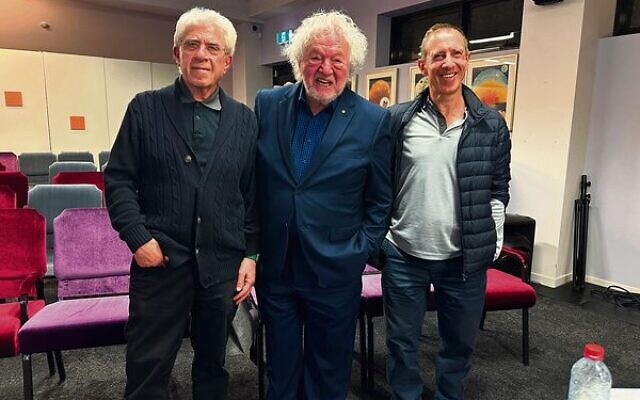Advocacy journalism to blame for imbalance
"I know I would not want to be a Jewish journalist working for the Fairfax [Nine] papers or for the ABC," says Michael Gawenda.
The explosion of activist journalism has seeded the ground for the Albanese government’s failure to address the upsurge in antisemitism since the Israel-Hamas war erupted, a former editor of Melbourne’s The Age newspaper has claimed.
“We have a government, a Prime Minister and a Foreign Minister and senior ministers that simply have been unable to forthrightly call out antisemitism,” Michael Gawenda told a forum at Melbourne Masorti congregation Kehilat Nitzan on Sunday.
The government has “tried in different ways because they’ve been pushed to try, but they have not been able to do it … when they’ve talked about antisemitism and how terrible it is, they’ve said, ‘and Islamophobia is just as bad'”.
Claiming some sections of the media have given the government leeway to express this moral equivalence, when it is the explosion of antisemitism that is the real news story, he lamented, “I have no doubt that were the media more forthright, more fair, more doing their job as journalists … politicians would have behaved differently.”
Editor-in-chief of The Age from 1997 to 2004, Gawenda said the only comprehensive reporting of the antisemitism spiral has been in his old rival, The Australian. “I know I would not want to be a Jewish journalist working for the Fairfax [Nine] papers or for the ABC.”
Gawenda said he doesn’t believe there is “a huge wave of anti-Jewish feeling sweeping over the Commonwealth, but in key areas where Jews have been active … there are many … young Jews in particular, who feel abandoned and isolated”.
The questions about Jewish identity and survival he posed in his 2023 memoir My Life As A Jew, published on the eve of the October 7 pogrom, “are even more urgent in this post-October 7 time, when neither Israel nor the Jews of the Diaspora can go back to what was before”, he said. “If we can’t go back to what was before, what can we go forward to? It is more urgent than ever to ask this question: What does it mean to be a Jew?”
Co-panellist, author and academic Philip Mendes, said education can counter vogue stereotypes casting Israel as white European colonialists, when over half of Israeli Jews are of non-European background. The global collapse of the Jewish left and the abandonment of Jewish concerns by the Australian Greens have changed the political landscape.
“Since October 7, that unqualified endorsement of the Palestinian hardline national agenda seems to have become the new normal … Many progressives today espouse what can only be called a ‘progressive except for Jews’ position.”
Mendes said the make-up of Israel’s government has exacerbated global criticism – Gawenda adding, “We should never normalise that Israel’s police minister [Itamar Ben Gvir] is a racist and a fascist.”
Responding to an audience comment about a two-state solution, Gawenda asked, “If a two-state solution is not an answer, what is an answer? No one has come up with an answer that makes any sense to me at all.”
Quoting Rabbi Jonathan Sacks on Jews and hope, moderator Sam Lipski, an iconic Australian media figure and former editor of The AJN, who was in Israel on October 7, said after the Yom Kippur War, he’d written fancifully on peace between Israel and Egypt, which surprisingly came to fruition. Israelis and Palestinians today are against a two-state solution, but “the world changes”.


comments